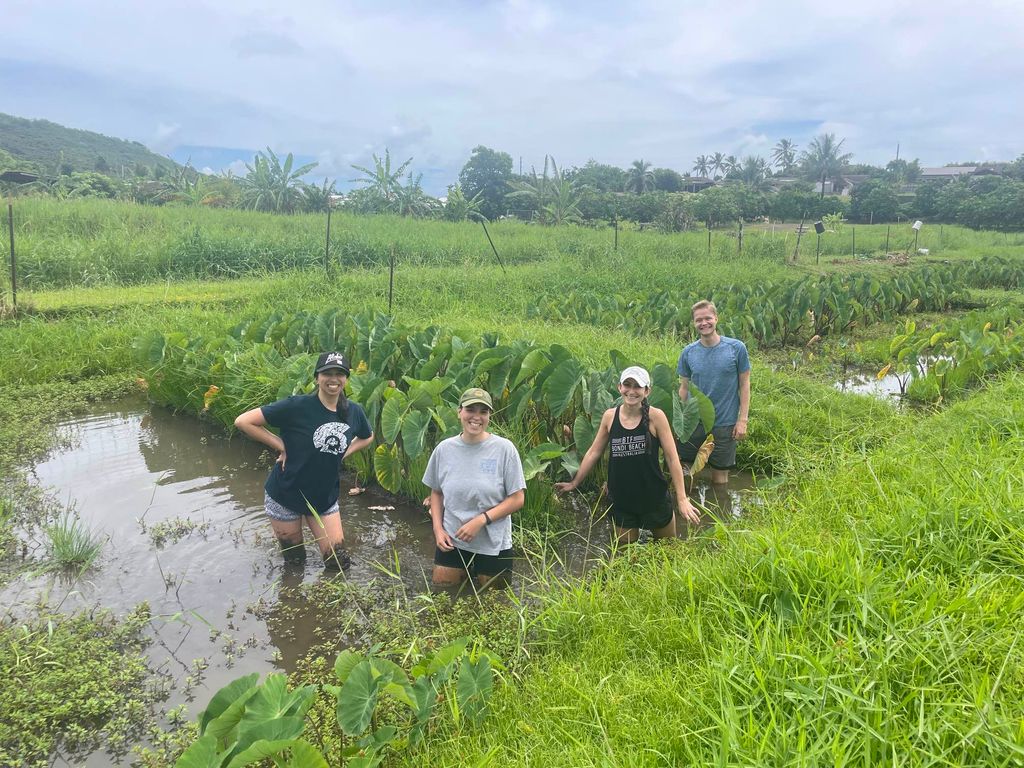Bridging the Gap between Human and Environmental Well-Being
Sarah Shahabi (’24) studied law and diplomacy to bring policy change in environmental and human health.

Bridging the Gap Between Human and Environmental Well-Being
Sarah Shahabi (’24) studied law and diplomacy to bring policy change in environmental and human health.
As one of the largest graduating classes in recent years, students from many different backgrounds will be walking across the stage at BU Law’s Class of 2024 Commencement Ceremony. With career aspirations in law firms, public service, healthcare, government, and more, graduates are poised to utilize their degrees and diverse experiences to make an impact in the legal world and beyond.
One student walking the stage this May is Sarah Shahabi (’24), who will be graduating from Boston University with her JD, as well as the Fletcher School at Tufts University with a Master of Arts in Law and Diplomacy (MALD).
The Record checked in with Sarah leading up to Commencement to reflect on her time at BU Law and learn what’s next for her.
Q&A
with Sarah Shahabi (’24)
The Record: What made you want to pursue a JD on top of your MALD?
Sarah Shahabi: When I graduated from Boston College with my undergrad biology degree, I knew I wanted to transition from science to policy and law but didn’t have the necessary background to do so. I applied to Fletcher’s Map Your Future program, which was great because it allowed me to work for a few years and figure out specifically what I wanted to do.
I started at an immigration law firm in San Diego, and later worked with two different members of Congress in the House of Representatives. Both Congressmen used to be environmental lawyers, and they gave me a lot of advice on my career and education. It became clear that what I wanted to do required the flexibility of having both a law degree and a background in policy.
The Record: What area of the law are you focusing on?
Sarah Shahabi: I’ve always had a strong interest in environmental justice—it’s how I got into the policy space—because I’d been studying all this science about climate change and how it affects human health, but didn’t see it reflected in the law.
I knew I wanted to go into public interest, so through internships, I explored the government side of things with the State House here in Massachusetts, the Federal Government, and the United States Environmental Protection Agency. I also worked on the nonprofit side with conservation groups. Last summer, I interned at the Native Hawaiian Legal Corporation (NHLC) and got to work directly in the community. I learned Hula and how to weave bracelets, and worked in a lo’i where the native Hawaiian people grow their sacred kalo (taro) plants. I got the chance to understand the motivation for the attorneys and their drive to protect the people and the land. It was so meaningful to be a part of that community. So, whatever’s next, I want to make sure I’m working with the people who are connected to the causes and understand how closely the environment affects human health and well-being.

The Record: Do you have any plans after graduation?
Sarah Shahabi: I’ll be taking the bar in July, and after that I have a very cool fellowship with the Conservation Law Foundation here in New England. I’ll get to cycle through different focus areas like climate change and an environmental justice group to learn more about what I want to practice.
The Record: Did you have a favorite class or professor at BU Law?
Sarah Shahabi: I’ve taken so many great classes, but my experience with the International Human Rights Clinic is probably the most unique. It’s a yearlong clinic, which is not very common, and I got the chance to partner with a supervising attorney to lead a project with the World Uyghur Congress, an advocacy group working to improve the lives of Uyghur people in China. We wrote a report and went to Geneva, Switzerland with our client, who presented our evidence to the United Nations Committee of Economic, Social, and Cultural Rights. We were able to see how the UN works, listen in on meetings, and be involved in that experience first-hand.
Professor Akram, director of the clinic, knows everybody in the field of international human rights and will share anything you need to know about this area of the law. We are very lucky to have her. There are also professors doing groundbreaking things in the reproductive rights space. I’ve had both Professor Huberfeld and Professor Ahmed as teachers, but I’ve also been following their academic and policy-influencing work.

The Record: What will you remember most about your time at BU Law?
Sarah Shahabi: Having lunch with my friends. I have a really good group of friends, which often forms during 1L because you’re going through this hard time together. We had the same schedule and would have lunch together every day in-between our classes and just talk.
It’s a hard time to be a law student, especially an environmental one, because the laws change so much and every day it’s something new. Being able to sit down and talk with other lawyers and law students, and the community I got from that, is something I will try to recreate in any job I have. It’s so valuable and so good for your mental health to have those connections.
The Record: What activities do you enjoy in your downtime?
Sarah Shahabi: I’m lucky that my family is from here, so I have a good network in Boston. I live with one of my sisters and our dog, Chicken Nugget. We walk her every day and it’s nice getting out––even in the winter––there’s nothing better than fresh air.
I love living in Boston and doing things in the city. I love sports, going to Fenway, watching football, and I am a big Bruins fan. I’m also a runner; I ran the Boston Marathon my 1L year. My family was there, and my law school friends––who only knew me for a month––all came and cheered me on. I had such a good time, it was one of the best days of my life.
